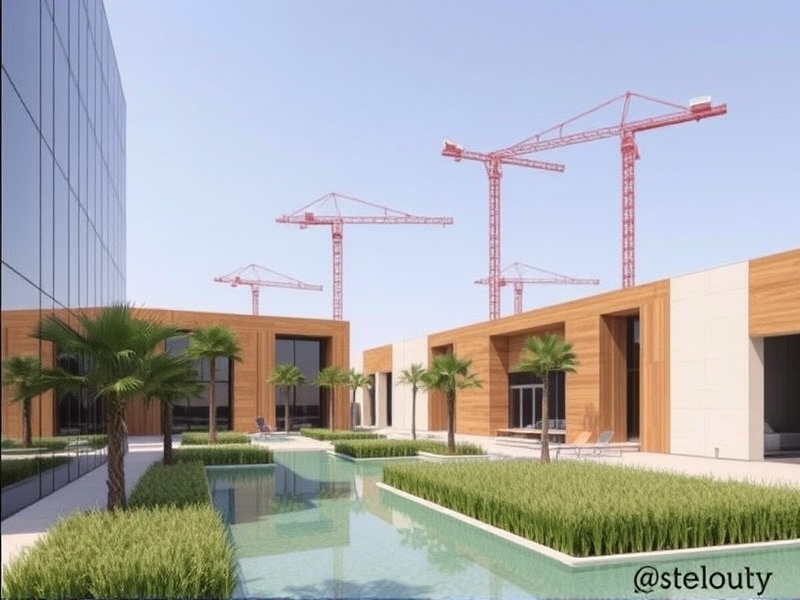Our Location
304 North Cardinal St.
Dorchester Center, MA 02124
Discussing the adoption of sustainable building practices through the use of WPC materials in the UAE's construction sector.

Wood Plastic Composites (WPC), a blend of wood fibers and plastic, have emerged as a promising material in the construction industry due to their eco-friendly nature and durability. In the United Arab Emirates (UAE), where sustainable development is becoming increasingly important, the adoption of WPC materials is gaining traction. This article explores the environmental benefits and sustainability aspects of using WPC materials in construction within the UAE.
The use of WPC materials in UAE construction projects can significantly reduce the reliance on traditional building materials, which often involve high energy consumption and carbon emissions during production. For instance, a study by the UAE Ministry of Climate Change and Environment highlights that the production of WPC reduces the carbon footprint compared to conventional wood or plastic products. Additionally, WPC materials are highly resistant to moisture, rot, and insect damage, reducing maintenance costs and extending the lifespan of buildings.
The UAE has been at the forefront of adopting innovative solutions for sustainable construction. Companies like EcoBuild Solutions have introduced WPC-based cladding systems that not only enhance the aesthetic appeal of buildings but also improve energy efficiency. These cladding systems help in reducing heat absorption, thus decreasing the need for air conditioning and lowering overall energy consumption. Moreover, WPC materials can be used for decking, fencing, and roofing, providing versatile applications in residential and commercial projects alike.
Beyond environmental benefits, the use of WPC materials in UAE construction can stimulate economic growth through job creation in the manufacturing and installation sectors. Furthermore, it aligns with the UAE’s Vision 2021 goals of promoting sustainable development and reducing environmental impact. The increased demand for WPC materials encourages local industries to adopt more sustainable practices, fostering a culture of environmental responsibility among businesses and consumers.
Despite the numerous advantages, the adoption of WPC materials faces some challenges, such as higher initial costs compared to traditional materials. However, as technology advances and production scales up, these costs are expected to decrease. The UAE government’s support through incentives and regulations can further accelerate the uptake of WPC materials. Collaboration between industry stakeholders and policymakers will be crucial in addressing these challenges and ensuring widespread adoption.
UAE Ministry of Climate Change and Environment Report on Sustainable Building Materials